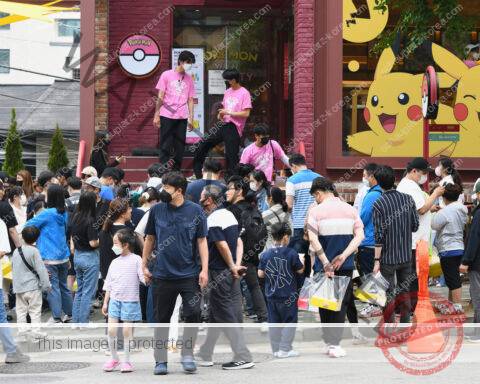Koreans have been using their own Korean alphabet since 1446, originally consisting of 17 consonant and 11 vowel characters. A letter script that was developed exclusively for the Korean language. But this was not always the case. Until around the 15th century, people in Korea still used hanja 한자, the Chinese characters. Hanja consists of thousands of characters and is a logographic script. Mastering it requires a lot of time and practice. This was also the decisive reason why many Koreans at that time could not read and write and this kind of communication was reserved only for the elite.
The then King Sejong the Great (1397-1450) wanted to change this. Every citizen in his kingdom should be able to read and write, was his vision. And so it came about that the king had the idea of developing an alphabet that should be easy for everyone to learn. However, the government of the time had initially prevented this, as the upper class feared that the common people might start a revolution. King Sejong, however, did not give up and continued to develop the project for a Korean alphabet in secret. Thanks to him, Hangeul 한글 was recognized as the official Korean alphabet on 9 October 1443.
Many claim that you can learn the Korean alphabet in a few hours. For me, however, it took a little longer…
Daniel Thomas Faller
But how easy is it to learn the Korean alphabet? Hangeul is clearly structured and consists of 10 vowels and 14 consonants. In addition, there are 5 double consonants and 11 complex vowels and consonants each. Hangeul is also said to be one of the most difficult languages. Many claim that you can learn the Korean alphabet in a few hours or days. For me, however, it took a little longer…

However, Hangeul has become much more important in modern times. Korea’s increasing success in exporting its cultural goods, at the forefront of the film and entertainment industry, as well as e-sports, the gaming industry, have all played their part. For example, the Oxford English Dictionary (OED) has added 26 new words of Korean origin to their latest edition. The “recognized authority on the English language” stated that “the inclusion of so many Korean words is a recognition of the change in the way English speakers use the language”. A global mindset – The success of Korean exports such as Squid Game or Parasite is due to a more global mindset among cultural producers, according to Dr. Hye-Kyung Lee of King’s College London. Whether you watch a show like Squid Game or listen to BTS hits like Butter or Dynamite, chances are you have been influenced by Korea in some way in your life.
Cheers 건배 – a toast to King Sejong, who helped make today’s holiday honoring handwriting in Korea a success with his perseverance





